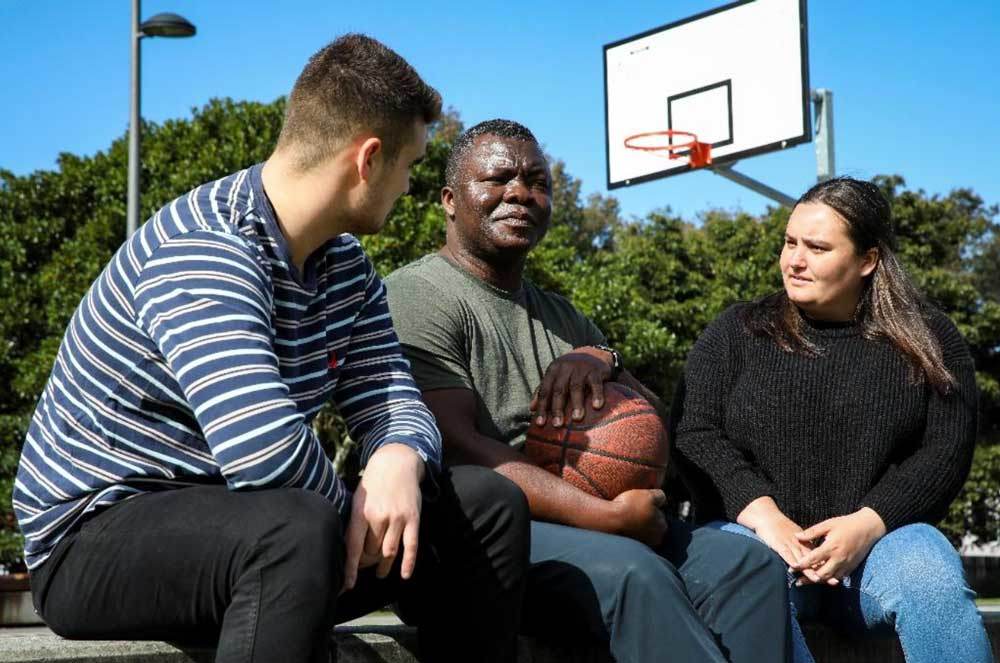Boundaries
Learn why boundaries are so important when supporting a person living with BPD.


What are boundaries?
Many people struggle in setting realistic boundaries - either setting boundaries too rigidly in relationships or not setting boundaries at all and/or alternating between these two extremes.
People living with borderline personality disorder (BPD) often struggle with boundaries in all sorts of ways. Often, they have a unstable sense of self and may look to their environment and others to define who they are in the moment. When a person is feeling overwhelmed, they often want those around them to take on some of their distress and help them to reregulate their emotions. The more distressed they become the more they try to encourage others to take on their distress and to try to make something better.
Many compassionate people will often do anything in an attempt to decrease the other’s unbearable pain. We often offer solutions, tell them what they should do, assume we know what they are feeling or thinking, and at the very extreme end we try to keep them safe. We act in ways that we would not dream of acting in other relationships. The more we do for them, the more the person living with BPD seems to need and the less likely they are to find a way to manage something for themselves and to experience the confidence of building their own autonomy.
To support people with BPD in a helpful way it’s important to be as consistent as we can with boundaries and try to avoid fluctuating between ‘too loose’ and ‘rigid’ boundaries.
Sometimes, for a multitude of reasons we may not be as consistent as we would like to be. That’s OK. It’s helpful to be open to and discuss this with the person you are supporting.
Establishing and maintaining boundaries is a learned skill that is acquired with practice particularly through noticing your experience of how you are 'feeling' or 'thinking' about your situation.
Why are boundaries so important?
Boundaries help protect your mental and emotional well-being. They help create a buffer between you and potential sources of stress, conflict, or emotional turmoil. When you set and enforce boundaries, you prioritise your own needs and self-care.
It communicates to others that you value yourself and your needs. This, in turn, encourages others to treat you with respect.
Boundaries are essential for maintaining healthy relationships. They define the limits of what you are comfortable with, both in terms of behaviour and treatment from others. Clear boundaries can prevent issues such as co-dependency, enmeshment and emotional manipulation.
Setting boundaries requires effective communication. It encourages open and honest discussions about needs, expectations and limits in relationships. This can lead to better understanding and connection with others.
Boundaries can help prevent and resolve conflicts. When everyone's boundaries are clear, it reduces the likelihood of misunderstandings and disagreements. When conflicts do arise, established boundaries provide a framework for resolving them.
Establishing boundaries empowers you to make choices that align with your values and priorities. It allows you to say 'no' when necessary and 'yes' when it feels right, rather than being coerced or pressured into actions or decisions you're not comfortable with.
Boundaries contribute to emotional regulation. When you set boundaries, you have more control over your emotional responses. You can better manage stress, anxiety and overwhelm because you're not constantly exposed to situations that trigger negative emotions.
Boundaries are not only about protecting yourself; they also demonstrate respect for others' boundaries. When you establish and respect your own boundaries, you model healthy boundary-setting for others, encouraging them to do the same.
It’s important to note that boundaries are not punitive. They reflect what you can (or can’t do/tolerate) rather than ‘drawing a line in the sand.’
What is helpful to consider before putting a boundary in place?
We will all have differing boundaries for different situations. It’s important to reflect on a few questions before trying to enforce a boundary.
What is causing me the most distress and resentment? Consider practicing with something relatively minor that’s causing you distress.
Why do I keep allowing this behaviour/action? What’s stopping me/getting in the way of changing what I can do?
Do I know what I want, will/won’t accept. Am I willing to assert my own values and limits?
Will it (the boundary) reflect respect for me (self), respect for the person I am supporting and respect for our relationship?
Is this boundary reasonable in my family/our context?
Is this boundary something that I can realistically maintain even when things get really tough? Can I be consistent?
How will I communicate it? It’s important to communicate a new boundary when everyone is relatively calm in a neutral, non-judgemental way.
Refer to our Assertiveness page regarding 'I statements' on strategies for communicating a boundary
Often you may feel controlled or blamed by the person living with BPD. You may have a fear that if you do not act in a particular way that the person you are supporting will fall apart and their distress escalate in some way including engaging in self-harm.
You may be confronted with feelings of blame and guilt or quickly lose sight that you may not be able to change the way the person feels or acts. However, we know that when you take control of your own reactions and make decisions for yourselves and are not controlled by others that the dynamic of your relationship changes.
The person living with BPD is handed something back, they are asked to do something different for themselves. It is an opportunity for them to learn to engage differently with overwhelming internal experiences. You too, have an experience of them being able to manage something, that you can tolerate their distress and your own distress; that together you can “get through”.
